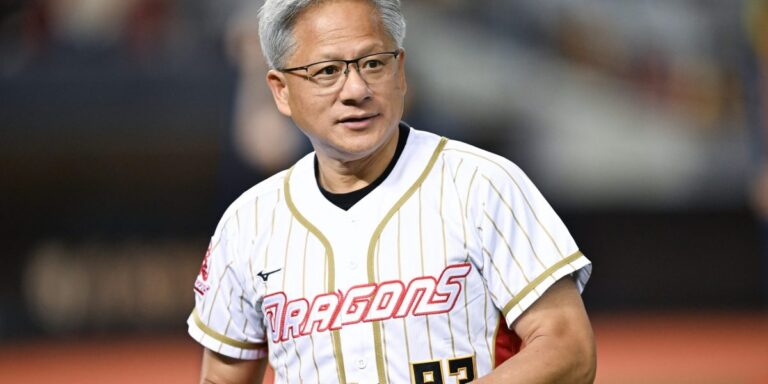Investors should mark next Wednesday in bold red on their calendars, as it could end up being far more important than Federal Reserve Chairman Jay Powell’s speech at Jackson Hole.
One of Wall Street’s most influential tech bulls, Wedbush Securities’ Dan Ives, has just started a metaphorical drum roll in anticipation of Nvidia’s quarterly earnings, due on August 28. But don’t confuse this with your run-of-the-mill investor report: This is truly “the most significant tech earnings in years,” according to Ives.
In his view, the tech bull market depends on whether underlying demand for new data center capacity, for example to operate OpenAI’s ChatGPT, remains strong. If this expectation is violated, the market could easily repeat the turmoil around August 5th, which has been likened to Black Monday in 1987, even if Chairman Powell indicated today that interest rates would start to fall.
And it’s all down to NVIDIA CEO Jensen Huang, whose cutting-edge graphics processors, once used to power video games, are now powering the AI gold rush because they can perform calculations in parallel, rather than sequentially like most central processors. When networked together in large computing clusters, they become the powerful neural networks without which generative AI would be impossible.
“There is one company in the world that is foundational to the AI revolution,” Ives wrote Thursday. “And that is NVIDIA. As the godfather of AI, John has the perfect position and perspective to discuss the demand for AI across the enterprise and the future demand for NVIDIA AI chips.”
Rumors of delays to next-generation AI training chip “Blackwell”
The market will scrutinize the report for even the slightest sign that demand for the company’s benchmark H100 processors may be weakening, with investors such as hedge fund Elliott Management warning that Nvidia’s valuation is in bubble territory.Huang’s company is estimated to control 90% of the AI training chip sector.
Equally important will be what Huang has to say about the transition from the current Hopper chips to the next-generation Blackwell architecture, led by the upcoming B200 chip. A report from The Information earlier this month suggested there could be delays, which could pose risks that will ripple through the entire AI food chain.
Charles Liang, CEO of data center hardware provider Supermicro Computer, has already reduced his fiscal year revenue forecast as a result.
The speculation emerged following news that major customers like Elon Musk were investing in contingency plans in case Nvidia’s chips become hard to come by.
Musk said last month that Tesla, in its eager pursuit of a breakthrough in self-driving cars, is focusing on its own custom AI silicon. These chips are specifically designed with visual (as opposed to text) machine learning in mind, though Musk has been careful not to oversell the progress.
Ives predicts ‘new masterpiece’ from Nvidia’s Huang
If Huang acknowledges that customers continue to line up for the last chips he can sell, bulls like Ives will be convinced that they’re right that the AI party is just getting started — or, as he puts it, the market is reliving the 1995 dot-com boom rather than the 1999 dot-com crash.
In his estimation, market valuation is still stuck at the level it was when a young, shaggy-haired Marc Andreessen first took Netscape public. We’re not yet at the AI equivalent of Pets.com.
“Tech stocks are poised to rise,” Ives added, predicting “another outstanding quarter” for Nvidia.
On Wednesday, investors should get a better sense of whether Wedbush or Elliott made the right call.

